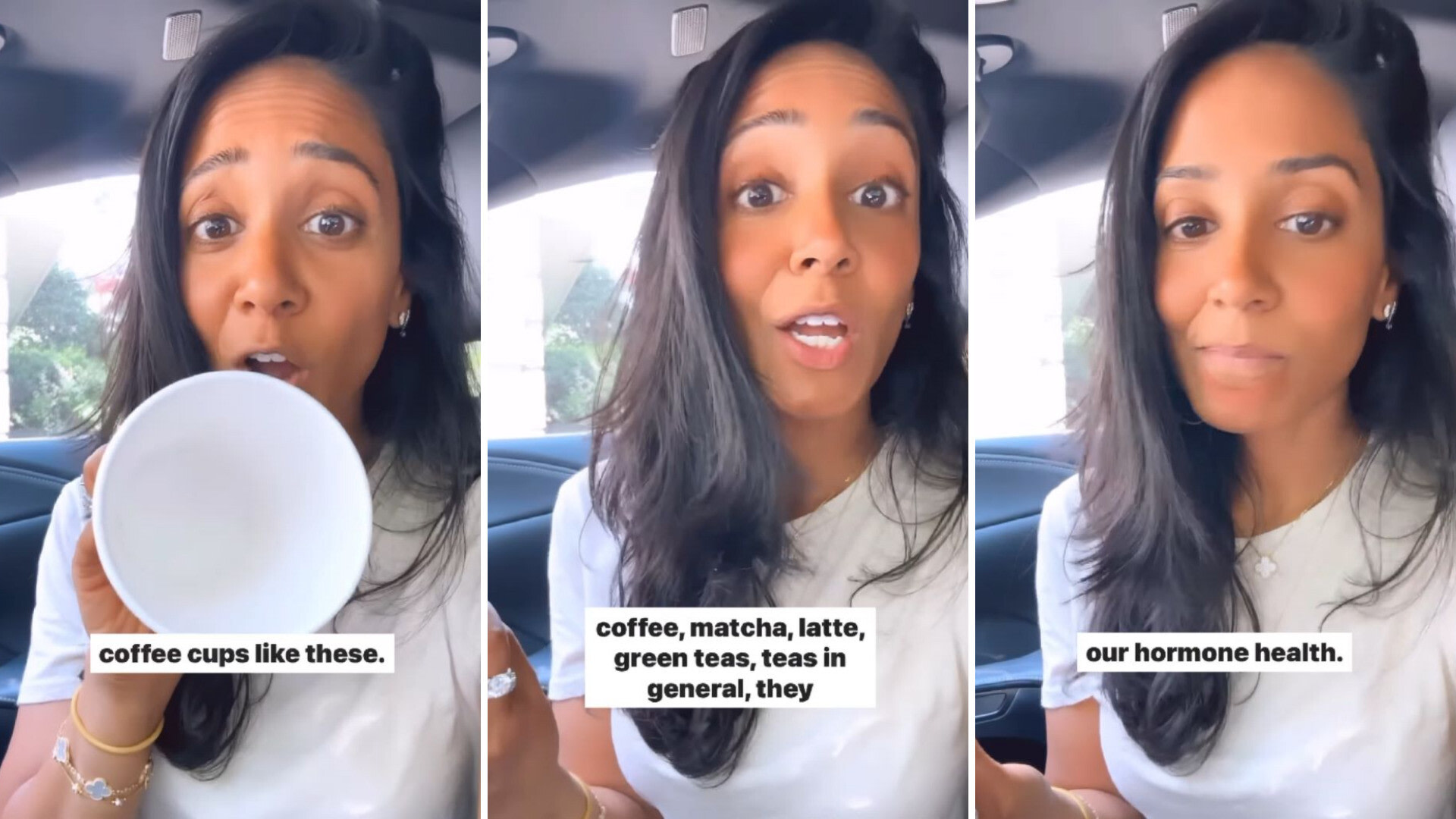When you order to-go coffee, you might be getting an unwanted extra ingredient — microplastics.
Doctor Poonam Desai (@doctoranddancer) shared a video on Instagram explaining why she avoids traditional to-go coffee cups.
"Coffee cups are lined with a thin layer of plastic," she explains in the video. "So when you pour hot liquid into this … they leach thousands of millions of microplastics into your drink."
A recent study found that these cups release over a trillion plastic nanoparticles (per single-use cup) when filled with hot liquid, according to HealthDay News.
Microplastics are minuscule pieces of plastic that are less than 5 millimeters long (although they are often much smaller). They usually come from larger pieces of plastic that have broken down into smaller pieces.
"These are very small particles," Christopher Zangmeister, lead researcher on the study, told HealthDay News. "For reference of size … 1,000 particles with a diameter of 100 nanometers can fit across a human hair."
Microplastics are tiny enough that they can easily slip into our bloodstreams and end up in human organs, tissue, placenta, and breast milk.
We don't yet have enough data to understand how microplastics impact our health, but many experts believe there is reason for concern.
"Microplastics can be endocrine disruptors, really affecting our hormone health," Desai pointed out in her video.
In addition to possible human health risks, microplastics pose a threat to the environment. Microplastics from landfills can leach into the soil, threatening surrounding ecosystems. Our oceans are filled with microplastics that many marine animals accidentally ingest.
"Oh wow, I always thought that was wax!" one user replied to Desai's video. "Gonna have to start bringing my reusable ones more often."
"Another good reason to get rid of single use cups," wrote another.
To avoid microplastics in your drink, try bringing your own reusable mug the next time you go to a cafe. Metal or ceramic cups are a good alternative, Zangmeister suggested.
Join our free newsletter for easy tips to save more, waste less, and help yourself while helping the planet.








